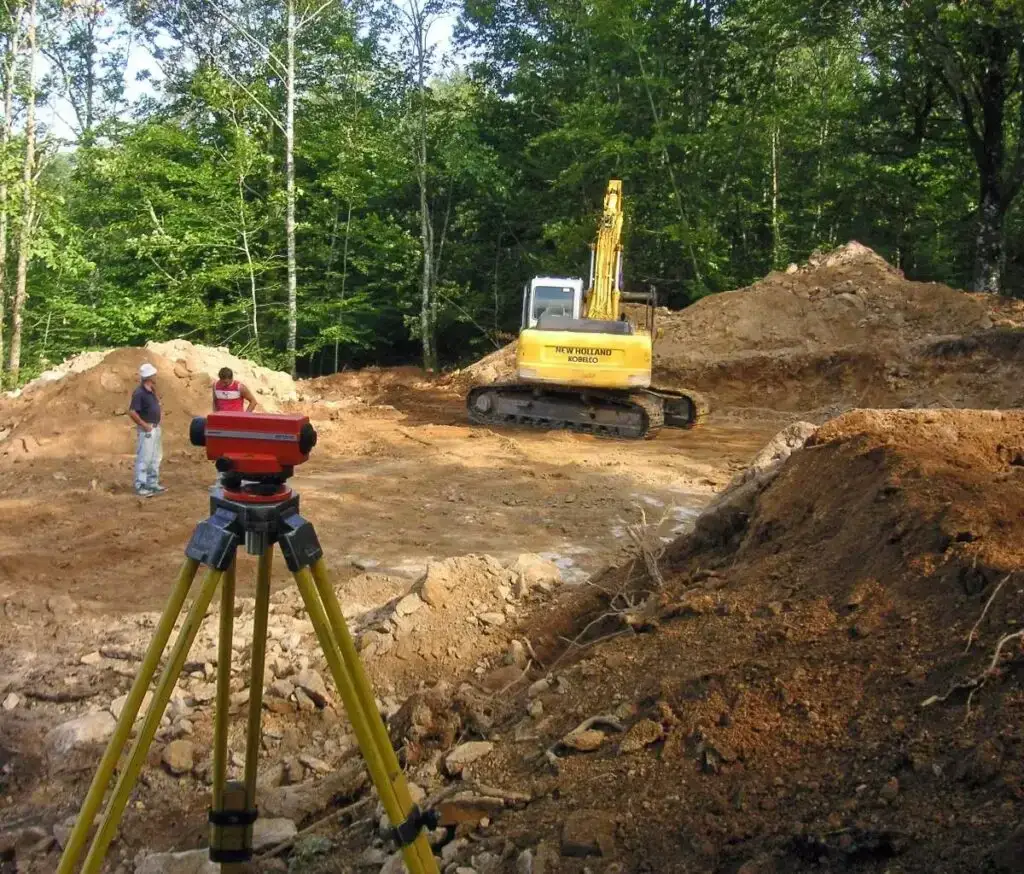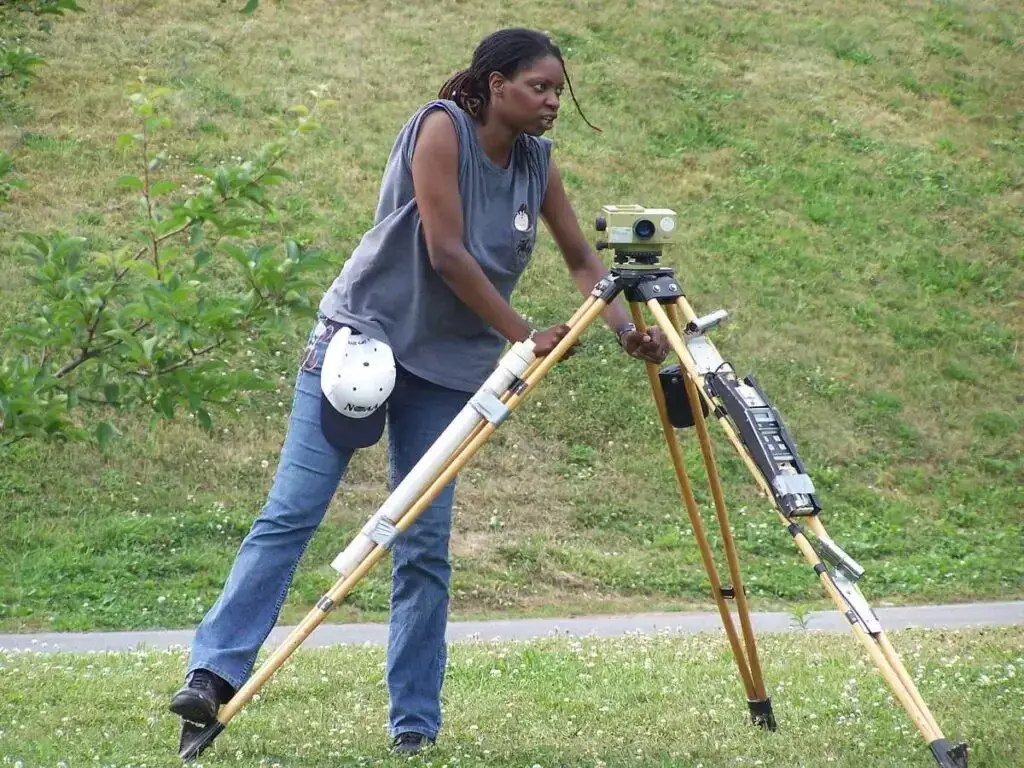Are you ready to set your construction project on a path to success? Look no further! In the world of construction, one key element sets the foundation for a prosperous project – the site survey.
Understanding the importance of conducting thorough site surveys is crucial for ensuring the overall success of your construction endeavors.
Our comprehensive content plan will guide you through everything you need to know about site surveys in construction. From the significance of accurate measurements to assessing potential risks and optimizing project timelines, we leave no stone unturned.
Join us as we delve into the topics below, equipping you with the knowledge and strategies to streamline your construction projects:
- The role of site surveys in project planning
- Proper techniques for conducting a site survey
- The importance of accurate measurements and data
- Identifying and mitigating risks through site surveys
- Boosting project efficiency and reducing costs with site surveys
Whether you’re a seasoned construction professional or just starting out in the industry, our content plan will provide valuable insights to help you excel in your construction projects. So, let’s dive in and unlock the path to construction success with well-executed site surveys!
Table of Contents
Understanding Importance of Site Surveys in Construction

A. Definition of Site Survey
A site survey is an essential step in the construction process that involves assessing various factors related to a specific location where a construction project is planned.
By conducting a site survey, construction professionals can determine the feasibility of the project and make informed decisions.
1. Definition and Purpose
A site survey is the comprehensive examination of a potential construction site to gather data and information necessary for the project. Its primary purpose is to evaluate the site’s suitability, identify any potential obstacles or challenges, and provide valuable insights for the decision-making process.
2. Role in Decision-Making Process
Site surveys play a crucial role in the decision-making process of construction projects. They help stakeholders and project managers understand the advantages, limitations, and risks associated with a specific site.
By analyzing the survey findings, informed decisions can be made regarding the project’s feasibility, design, budget, and timeline.
Read More on Building Inspections in West Auckland: Safety and Compliance
B. Key Considerations for Site Surveys
When conducting a site survey, several key considerations need to be taken into account to ensure the accuracy and effectiveness of the assessment.
1. Assessing Building and Project Requirements
Understanding the specific requirements of the building and the overall project is crucial during a site survey. This involves considering factors such as project scope, intended use of the building, applicable regulations and codes, environmental impact, and potential future expansion.
2. Determining the Ideal Site Location
Selecting the right location for a construction project is vital. During a site survey, the construction team evaluates factors like accessibility, proximity to utilities and transportation networks, soil composition, topography, and any potential natural or man-made hazards that may impact the project’s success.
Read More on What is 4 Way Inspection? The Ultimate Guide
Gathering Accurate Information in Site Surveys for Construction

Accurate information plays a crucial role in the success of any construction project. It not only ensures the project is completed efficiently but also helps in reducing costs. Gathering accurate information during site surveys is an essential step towards achieving these goals.
Read More on Importance of Building Inspection Before Purchasing a Property
Importance of Accurate Information
Accurate information holds immense importance when it comes to site surveys in construction. Let’s explore how it impacts the project’s success and cost efficiency.
Impact on Project Success
- Reduced Risks: Accurate information gathered during site surveys helps identify potential risks and challenges upfront. This allows project managers to plan and mitigate these risks effectively, ensuring a smoother project execution.
- Efficient Resource Allocation: Accurate information provides valuable insights into the site’s characteristics and conditions, allowing for better resource allocation. This helps avoid unnecessary delays and ensures the project progresses as per schedule.
- Optimized Design: Accurate information assists architects and designers in creating optimized designs that align with the site’s topography, further enhancing the project’s success.
- Detailed information on planning and designing effective foundation and concrete work projects.
- Filled with recommended practices and standards.
- Covers the basics of masonry construction as well as design considerations for residential and commercial properties.
- Includes diagrams, photographs, and technical notes as well as a glossary, references, and index.
- Suitable for architects, engineers, contractors, masons, and other professionals.
Read More on Container Pools Brisbane – Discover the Brilliance
Ensuring Cost Efficiency
- Minimized Rework: Accurate information obtained through comprehensive site surveys minimizes the need for rework by enabling accurate planning and design. This helps reduce the financial burden on the project.
- Reduced Change Orders: Accurate information plays a crucial role in minimizing change orders during the construction process. By gathering accurate data upfront, potential changes in the project’s scope can be identified and addressed beforehand.
Tools and Techniques for Accurate Site Surveys
To ensure accurate site surveys, construction professionals employ various tools and techniques that help in gathering precise information. These include:
- Use of Advanced Surveying Equipment: Utilizing cutting-edge surveying equipment, such as robotic total stations and GPS receivers, enhances accuracy and efficiency in site surveys.
- Employing Digital Tools and Technology: Digital tools and technologies, like 3D laser scanning and drone surveys, provide highly accurate data that assists in creating detailed site models.
- Leveraging the Expertise of Land Surveyors: Collaborating with experienced land surveyors ensures meticulous data collection and interpretation, allowing for precise site analysis.
Read More on How to Adhere to Legal Weight Limits for 40′ Shipping Container
Site Survey Process
A. Site Accessibility and Logistics Planning
Planning the layout and access points:
- Identifying suitable areas for construction
- Determining the best access points for workers and materials
- Ensuring compliance with local regulations and permits
Assessing transportation requirements:
- Evaluating the need for temporary roads or pathways
- Considering any restrictions or limitations for large equipment
- Planning for efficient material delivery
B. Land and Topographic Surveys
Importance of conducting land site surveys for legal boundaries in construction:
- Establishing property lines and ownership
- Verifying encroachments or boundary disputes
Assessing topography for structural considerations:
- Evaluating the slope and elevation of the land
- Identifying any potential issues for building stability
Read More on What is Site Inspection? All You Need to Know
C. Geotechnical Investigations and Soil Testing
Process of analyzing site soil conditions:
- Collecting samples for laboratory testing
- Assessing soil composition, density, and strength
- Determining if soil conditions are suitable for construction
Importance for foundation design and construction:
- Ensuring appropriate foundation design based on soil properties
- Mitigating risks such as settling or foundation failure
D. Utility Mapping and Identification
Identifying existing infrastructure on site:
- Locating underground utilities such as water, gas, and electrical lines
- Identifying potential conflicts with construction plans
Assessing the impact on construction plans:
- Determining necessary adjustments to accommodate utilities
- Developing plans for utility relocation if needed
Read More on How To Do Solar System Sizing For Your Home
E. Environmental Impact Assessment
Evaluating the potential environmental impacts:
- Examining factors such as flora, fauna, and ecosystems
- Identifying any endangered or protected species
- Assessing potential contamination or pollution risks
Identifying necessary mitigation measures:
- Developing strategies to minimize environmental harm
- Implementing measures for waste management and erosion control
F. Construction Site Safety and Hazard Assessment
Identifying potential hazards and safety risks:
- Assessing risks such as uneven terrain, falling objects, or hazardous materials
- Evaluating potential risks to workers and the surrounding environment
Implementing safety measures and protocols:
- Developing safety plans and procedures
- Providing appropriate safety equipment and training
Read More on Ultimate Truth About Shipping Container Homes In California
Site Feasibility Studies

A site feasibility study is an essential step in the construction process, helping evaluate the viability of a project and determining potential challenges and risks. It plays a crucial role in construction planning and management, as well as building design and layout.
Read More on 11 Mistakes to Avoid While Building a Container Home
Purpose of Site Feasibility Studies
1. Evaluating the Viability of a Construction Project
A site feasibility study assesses whether a construction project is feasible and financially viable. It evaluates various factors such as the site’s location, accessibility, and suitability for construction. By examining these aspects, stakeholders can make informed decisions about moving forward with the project.
2. Determining Potential Challenges and Risks
A thorough site feasibility study identifies potential challenges and risks associated with the proposed construction project. This includes analyzing factors like environmental impact, legal restrictions, zoning regulations, and infrastructure requirements.
Understanding these challenges allows project teams to develop strategies to mitigate risks and ensure a smooth construction process.
Read More on 20′ Container Legal Weight for Safe and Efficient Transportation
Construction Planning and Management
1. Developing a Comprehensive Construction Plan
Site feasibility studies provide valuable insights for developing a comprehensive construction plan. The study findings influence decisions regarding project layout, material selection, and site preparation.
By integrating survey data into the construction plan, project teams optimize resource allocation and ensure efficient project execution.
2. Resource Allocation and Project Timeline
Site feasibility studies also help determine resource allocation and project timelines. By considering survey findings, project teams can assess the availability of resources and estimate the time required for each construction phase.
This information enables effective planning and management, ensuring that the project stays within budget and meets deadlines.
Read More on The Environmental Benefits of Shipping Container Homes
Building Design and Layout
1. Design Considerations Based on Survey Findings
Site surveys provide vital information for designing buildings that are functional and efficient. The study findings help identify constraints, such as soil conditions or site topography, which must be considered during the design process.
By incorporating survey data into the building design, architects and engineers can create structures that are not only aesthetically pleasing but also structurally sound and conform to regulations.
2. Optimizing Space and Functionality
Site feasibility studies play a crucial role in optimizing space and functionality within a construction project. By analyzing site conditions and constraints, designers can maximize space utilization, ensuring efficient workflows and adequate space for various activities. This leads to improved functionality and overall project success.
Read More on Modular Container Restaurant: Revolutionary Solutions
Conclusion
Site surveys play a crucial role in the construction industry. From understanding the site conditions to assessing its feasibility, accurate and detailed information is vital for successful construction projects.
Throughout this article, we have explored the importance of site surveys in construction. They provide valuable insights about the site, helping construction teams make informed decisions and avoid potential issues.
It cannot be stressed enough how crucial it is to gather accurate and detailed information during a site survey. It forms the foundation of the entire construction project and ensures that all aspects are taken into consideration.
If you’re planning a construction project, consulting with professionals and conducting a thorough site survey is highly recommended. This will help you identify any potential challenges and make informed decisions.
For further reading and guidance, we encourage you to explore resources from reputable sources or consult with professionals who specialize in construction site surveys. Your investment in a comprehensive site survey will undoubtedly pay off in the long run, ensuring a smooth and successful construction project.
Read More on Modular Container Homes – Exploring a Unique World


